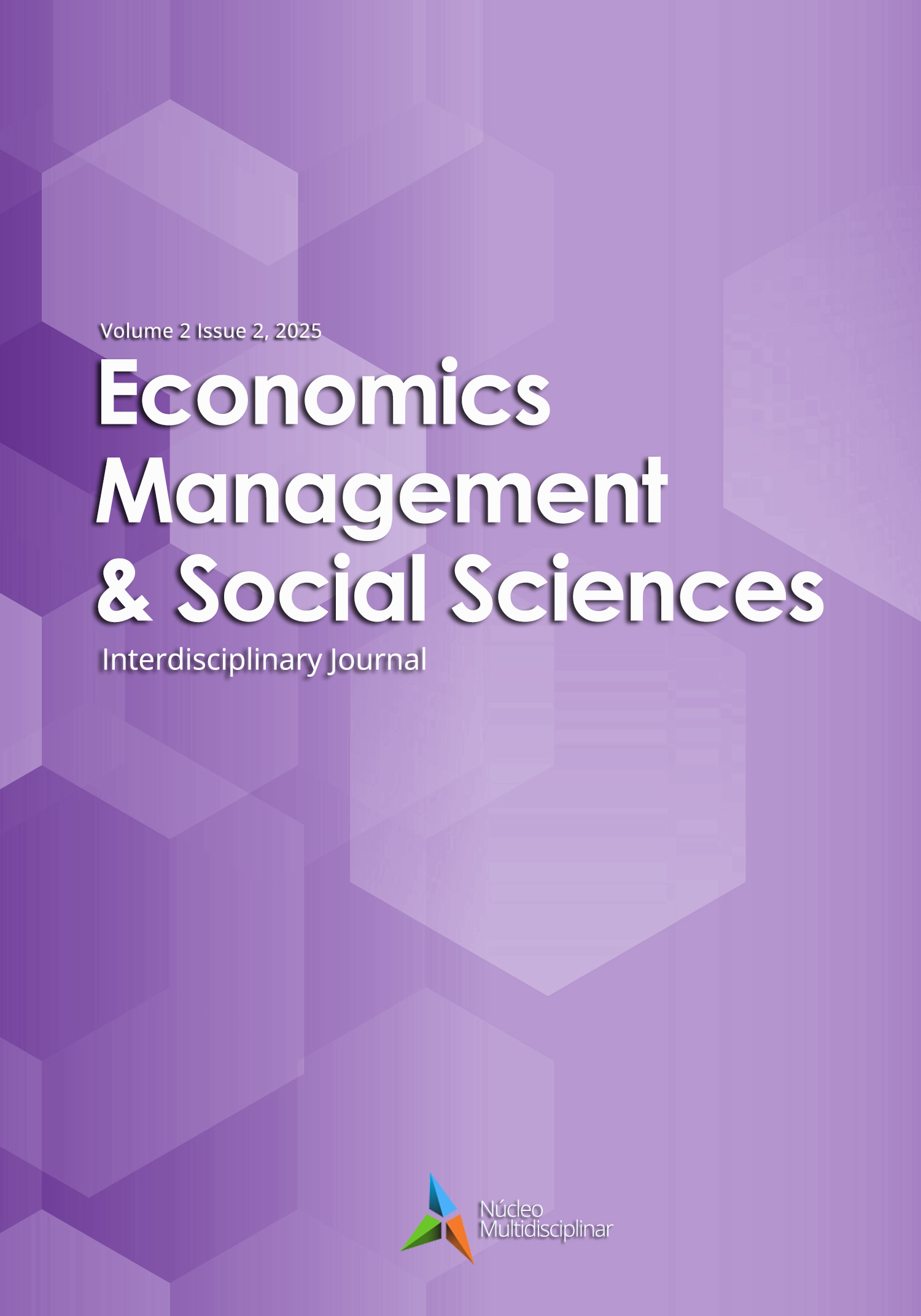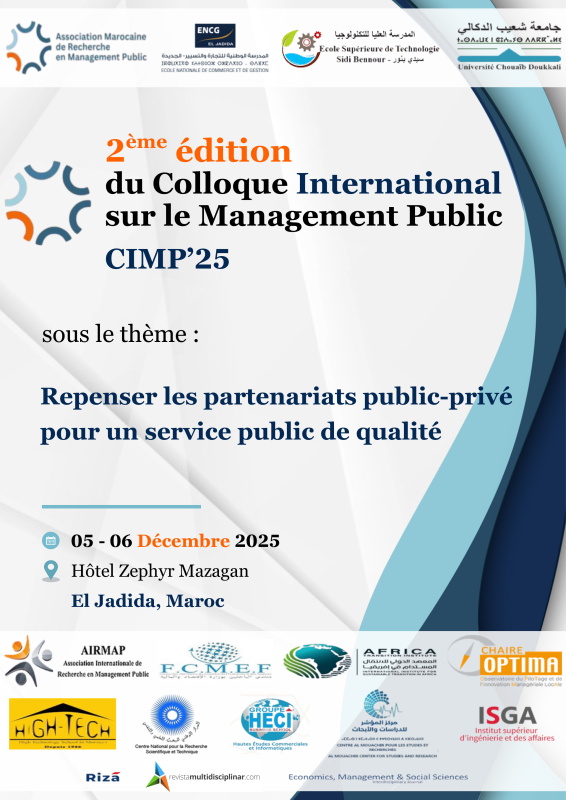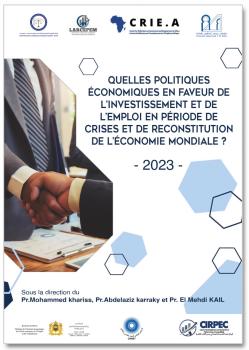Governance as a moderator of the education-growth nexus
Evidence from African economies
DOI:
https://doi.org/10.23882/emss25171Keywords:
education, governance, economic growth, human capital, RWLS methodAbstract
Education is widely recognized as a cornerstone of economic development, enhancing human capital, fostering innovation, and boosting productivity. Likewise, governance, characterized by institutional effectiveness, transparency, and anti-corruption measures, plays a crucial role in the successful implementation of educational and economic policies. However, the extent to which governance moderates the impact of education on economic growth remains underexplored, particularly in developing countries with varying institutional dynamics. This study examines the moderating role of governance in the education-growth relationship through an econometric analysis of panel data from seven African countries (Morocco, Tunisia, Egypt, South Africa, Kenya, Ghana, and Rwanda) spanning 1996 to 2023. Using the Robust Weighted Least Squares (RWLS) method, the findings reveal that education, measured by average years of schooling, has a direct but limited positive effect on economic growth due to persistent challenges in education quality. However, governance, proxied by government effectiveness, significantly amplifies this impact, indicating that strong institutions enhance the alignment between educational outcomes and labor market needs. These findings underscore the necessity of integrated public policies that combine educational investment with institutional reforms to maximize the economic benefits of education in developing economies.
References
Acemoglu, D. (2009). Introduction to Modern Economic Growth | Princeton University Press. https://press.princeton.edu/books/hardcover/9780691132921/introduction-to-modern-economic-growth
Acemoglu, D., Johnson, S., Robinson, J., & Yared, P. (2005). From Education to Democracy? (NBER Working Paper 11204). National Bureau of Economic Research, Inc. https://econpapers.repec.org/paper/nbrnberwo/11204.htm
Acemoglu, D., & Robinson, J. A. (2013). Why Nations Fail: The Origins of Power, Prosperity, and Poverty (Reprint edition). Crown Currency.
African Union. (2015). Agenda 2063: The Africa We Want. | African Union. https://au.int/en/agenda2063/overview
African Union. (2016). Continental Education Strategy for Africa 2016-2025 (CESA 16-25). https://ecosocc.au.int/sites/default/files/files/2021-09/continental-strategy-education-africa-english.pdf
Aidt, T. S. (2009). Corruption, Institutions and Economic Development. Cambridge Working Papers in Economics. https://ideas.repec.org//p/cam/camdae/0918.html
Alesina, A., Ozler, S., Roubini, N., & Swagel, P. (1992). Political Instability and Economic Growth (NBER Working Paper 4173). National Bureau of Economic Research, Inc. https://econpapers.repec.org/paper/nbrnberwo/4173.htm
Al-Samarrai, S. (2009). The impact of governance on education inequality: Evidence from Bangladesh. Public Administration and Development, 29(3), 167‑179. https://doi.org/10.1002/pad.529
Andvig, J. C., & Moene, K. O. (1990). How corruption may corrupt. Journal of Economic Behavior & Organization, 13(1), 63‑76.
Banque mondiale. (1996). Worldwide Governance Indicators [Text/HTML]. World Bank. https://www.worldbank.org/en/publication/worldwide-governance-indicators
Barro, R. J. (1991). Economic Growth in a Cross Section of Countries*. The Quarterly Journal of Economics, 106(2), 407‑443. https://doi.org/10.2307/2937943
Baum, M. A., & Lake, D. A. (2003). The Political Economy of Growth: Democracy and Human Capital. American Journal of Political Science, 47(2), 333‑347.
Beyene, A. B. (2022). Governance quality and economic growth in Sub-Saharan Africa: the dynamic panel model. Journal of Economic and Administrative Sciences, 40(2), 404‑418. https://doi.org/10.1108/JEAS-08-2021-0156
Dahlum, S., & Knutsen, C. H. (2017). Do Democracies Provide Better Education? Revisiting the Democracy–Human Capital Link. World Development, 94(C), 186‑199.
Dridi, M. (2014). Corruption and Education: Empirical Evidence. International Journal of Economics and Financial Issues, 4(3), 476‑493.
Duerrenberger, N., & Warning, S. (2018). Corruption and education in developing countries: The role of public vs. private funding of higher education. International Journal of Educational Development, 62(C), 217‑225.
Easterly, W., & Levine, R. (2003). Tropics, germs, and crops: how endowments influence economic development. Journal of Monetary Economics, 50(1), 3‑39. https://doi.org/10.1016/S0304-3932(02)00200-3
Everhart, S., Martinez-Vazquez, J., & McNab, R. (2009). Corruption, governance, investment and growth in emerging markets. Applied Economics, 41(13), 1579‑1594.
Farida, M., & Ahmadi-Esfahani, F. Z. (2008). Corruption and economic growth in Lebanon. 2008 Conference (52nd), February 5-8, 2008, Canberra, Australia. https://ideas.repec.org//p/ags/aare08/6043.html
Fayissa, B., & Nsiah, C. (2013). The Impact of Governance on Economic Growth in Africa. The Journal of Developing Areas, 47(1), 91‑108.
Feng, Y. (1997). Democracy, Political Stability and Economic Growth. British Journal of Political Science, 27(3), 391‑418.
Grindle, M. S. (2004). Good Enough Governance: Poverty Reduction and Reform in Developing Countries. Governance, 17(4), 525‑548. https://doi.org/10.1111/j.0952-1895.2004.00256.x
Guèye, T. N. (2021). Effets des dépenses publiques d’éducation, la fiscalité et la corruption sur la croissance économique en Afrique de l’ouest : une analyse empirique sur données de panel. European Scientific Journal, ESJ, 17(38), 160‑160. https://doi.org/10.19044/esj.2021.v17n38p160
Hall, R. E., & Jones, C. I. (1999). Why do Some Countries Produce So Much More Output Per Worker than Others?*. The Quarterly Journal of Economics, 114(1), 83‑116. https://doi.org/10.1162/003355399555954
Hanushek, E. A., & Woessmann, L. (2008). The Role of Cognitive Skills in Economic Development. Journal of Economic Literature, 46(3), 607‑668. https://doi.org/10.1257/jel.46.3.607
Hanushek, E. A., & Woessmann, L. (2015). The Knowledge Capital of Nations: Education and the Economics of Growth. MIT Press.
Jalilian, H., Kirkpatrick, C., & Parker, D. (2007). The Impact of Regulation on Economic Growth in Developing Countries: A Cross-Country Analysis. World Development, 35(1), 87‑103.
Kaufmann, D., Kraay, A., & Mastruzzi, M. (2010). The worldwide governance indicators : methodology and analytical issues. Policy Research Working Paper Series. https://ideas.repec.org//p/wbk/wbrwps/5430.html
Kaufmann, D., Kraay, A., & Zoido-Lobaton, P. (1999). Governance matters. Policy Research Working Paper Series. https://ideas.repec.org//p/wbk/wbrwps/2196.html
Keefer. (2006). Governance and Economic Growth in China and India. In Dancing with Giants: China, India, and the Global Economy.
Khan. (2007). Governance, economic growth and development since the 1960s. http://eprints.soas.ac.uk/9921/1/DESA_Governance_Economic_Growth_and_Develo pment_since_1960s.pdf accessed 29-08-2014
Klomp, J., & de Haan, J. (2013). Political Regime and Human Capital: A Cross-Country Analysis. Social Indicators Research, 111(1), 45‑73. https://doi.org/10.1007/s11205-011-9983-6
Lagdiri, Y., & Ouazzani Touhami, N. (2023). ARDL Modeling and Analysis of the Impact of Student-Teacher Ratio and Governance Effectiveness on Economic Growth in Morocco. African Scientific Journal, 3(21), 0946‑0946. https://doi.org/10.5281/zenodo.10555751
Lucas, R. E. (1988). On the mechanics of economic development. Journal of Monetary Economics, 22(1), 3‑42. https://doi.org/10.1016/0304-3932(88)90168-7
Mauro, P. (1995). Corruption and Growth. The Quarterly Journal of Economics, 110(3), 681‑712. https://doi.org/10.2307/2946696
North, D. C. (1991). Institutions, Institutional Change and Economic Performance. Cambridge Books. https://ideas.repec.org//b/cup/cbooks/9780521394161.html
Perkins, Radelet, & Lindauer. (2006). Economics of Development. https://wwnorton.com/books/Economics-of-Development/
Pritchett, L. (2001). Where Has All the Education Gone? The World Bank Economic Review, 15(3), 367‑391. https://doi.org/10.1093/wber/15.3.367
Rodrik, D., & Subramanian, A. (2003). The Primacy of Institutions: (and what this does and does not mean). https://www.elibrary.imf.org/view/journals/022/0040/002/article-A010-en.xml
Romer, D. (2001). Advanced Macroeconomics. McGraw-Hill.
Romer, P. (1989). Human Capital And Growth: Theory and Evidence (NBER Working Paper 3173). National Bureau of Economic Research, Inc.
Schneider, H. (1999). Participatory Governance: The Missing Link for Poverty Reduction. OECD Development Centre Policy Briefs. https://ideas.repec.org//p/oec/devaab/17-en.html
Siddique, H. M. A., Shehzadi, I., Shaheen, A., & Manzoor, 4Muhammad Rizwan. (2016). The impact of governance and institutions on education and poverty alleviation: a panel study of SAARC economies. MPRA Paper. https://ideas.repec.org//p/pra/mprapa/71248.html
Sirowy, L., & Inkeles, A. (1990). The Effects of Democracy on Economic Growth and Inequality: A review. Studies In Comparative International Development, 25(1), 126‑157. https://doi.org/10.1007/BF02716908
Solow, R. M. (1956). A Contribution to the Theory of Economic Growth. The Quarterly Journal of Economics, 70(1), 65‑94. https://doi.org/10.2307/1884513
Tanzi, V. (1998). Corruption Around the World: Causes, Consequences, Scope, and Cures. IMF. https://www.imf.org/en/Publications/WP/Issues/2016/12/30/Corruption-Around-the-World-Causes-Consequences-Scope-and-Cures-2583
UNESCO. (2023). Education in Africa: placing equity at the heart of policy; continental report - UNESCO Bibliothèque Numérique. https://unesdoc.unesco.org/ark:/48223/pf0000384479
United Nations. (2000). United Nations Millennium Development Goals. https://www.un.org/millenniumgoals/
United Nations. (2015). Transforming our world: the 2030 Agenda for Sustainable Development | Department of Economic and Social Affairs. https://sdgs.un.org/2030agenda
USAID. (2002). “USAID Supports Good Governance”. http://www.docstoc.com/docs/673298/USAID-Supports-Good-Governance
Yoshihiro Saito. (2021). Une bonne gouvernance est-elle un préalable nécessaire à la paix ? UNDP. https://www.undp.org/fr/blog/une-bonne-gouvernance-est-elle-un-prealable-necessaire-la-paix
Downloads
Published
How to Cite
Issue
Section
License
Copyright (c) 2025 Imane BOUNAHR, Younes EL KHATTAB

This work is licensed under a Creative Commons Attribution-NonCommercial 4.0 International License.







